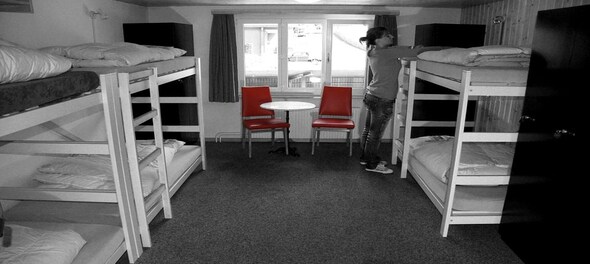
While the International Monetary Fund (IMF) had already predicted 2020 as a year of sluggish recovery for the world economy, COVID-19 threw another spanner in the works. In a drastic turn of events, countries across the world are now faced with its biggest humanitarian and health crisis. And consequently, a burgeoning global economic crisis.
Right from Europe, the USA, South East Asia, among other geographies, coronavirus has severely hit economies worldwide, causing grave ramifications for most industries in varying degrees. The Indian government has been taking necessary steps not only to prevent the country from the virus threat but also on the economic front, thereby ensuring that India, as a nation springs back to life and livelihood as soon and as smoothly as possible.
At a micro-economic level, with all industries impacted by the pandemic globally, what lies ahead is rather uncertain for almost all sectors. In such an unprecedented situation, the right planning and preparedness can render a better disposition towards recovery.
What’s next in the shared accommodation world post-COVID-19?
Living in a pandemic hit world, the outlook towards the next S curve of the shared accommodation industry becomes an imperative topic to ponder upon. The transformation that the shared accommodation industry business model could go through and has already partly started to go through is multidimensional, and consequently, it needs to be understood in various parts.
Future of demand in the shared accommodation segment
To share a perspective on overall demand, given our young demographics as a country, 35-40 lakh people look for rental accommodation out of approximately 55-60 lakh people migrating to the top 8 urban Indian cities every year. Of this, only about 5 percent of the demand is captured by organised shared accommodation players. This means that even with fluctuations in demand patterns, there is still a large uncaptured consumer-base that requires better standards of stay and service. In addition, while there has been conversation around moving to work-from-home (WFH), our discussions with several corporates reveal that in the short term the Modus Operandi will be a mix of part WFH and part WFO (work from the office).
Real estate costs
Looking at it from the perspective of the real estate sector, we expect a shift from fixed lease models to revenue share models. This will enable the various stakeholders to jointly align on the same outcomes to achieve for the industry to become successful. In addition, we expect the rentals to be more in line with real estate market yields versus historical rates.
Putting customer experience at the heart of the business
The lifeline of the shared accommodation industry is its residents who trust and rely on the credibility of the services provided to them. Being a segment with multiple customer touch-points, service excellence is basic and not an add-on. It is in this context that shared accommodation players must ensure that customer service and experience are on an incremental journey when it comes to improvement and enhancement of excellence. In fact, with major stress on hygiene, cleanliness, safety and security, improved customer service will be the main differentiator in this situation while being operationally competitive compared to the unorganised market.
Consumer flexibility in the shared accommodation segment
COVID-19 has considerably changed the way people spend on consumption. Consumers are facing problems with limited cash flow and managing personal finances. This is where affordability and flexibility become a major decision driver. Apart from the best-in-class customer service, in times of COVID-19, flexibility is a core aspect of providing a great customer experience. In the shared accommodation segment specifically, flexibility translates into being able to provide customers with multiple options given the variety of socio-economic impacts faced by consumers during the COVID-19 Pandemic. In times like this, businesses need to understand the importance of flexibility for consumers and provide various forms of offers, discounts, payment options and credit mechanisms to ease their pain. In the long-term, this will also help companies build brand loyalties.
Lastly, in addition to the measures related to the prevention of the coronavirus is the fact that joy comes from spreading and is more infectious than the virus itself. Shared accommodation players must ensure that joy is constantly spread in subtle means and ways to ensure that each and every customer is happy with their journey as a resident.
—Ankit Gupta is Chief Operating Officer & SVP — Frontier Businesses, OYO Hotels & Homes. The views expressed are personal
First Published: Jun 23, 2020 8:11 PM IST
Check out our in-depth Market Coverage, Business News & get real-time Stock Market Updates on CNBC-TV18. Also, Watch our channels CNBC-TV18, CNBC Awaaz and CNBC Bajar Live on-the-go!


Delhi, Indore, Surat and Banswara — why these are the most challenging domains for Congress internally
May 4, 2024 1:53 PM
Congress nominee from Puri Lok Sabha seat withdraws, citing no funds from party
May 4, 2024 12:00 PM
Lok Sabha Polls '24 | Rahul Gandhi in Rae Bareli, why not Amethi
May 4, 2024 9:43 AM

